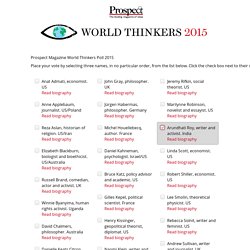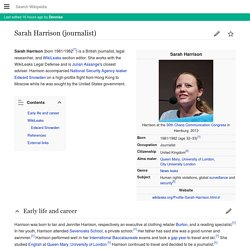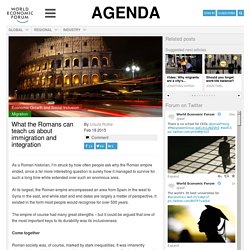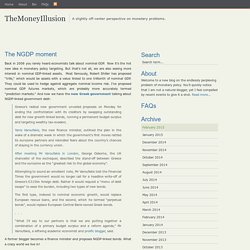

ChemIDplus - 19794-93-5 - PHLBKPHSAVXXEF-UHFFFAOYSA-N - Trazodone [INN:BAN] Prospect Magazine World Thinkers Poll 2015. Prospect Magazine World Thinkers Poll 2015 Place your vote by selecting three names, in no particular order, from the list below.

Click the check box next to their name and wait for the tick to appear to confirm your selection. Ding Dong The Witch Is Dead. Paulo Coelho sur Twitter : "The Wonder Woman @josephine_witt... Lindt & Sprüngli, Master Chocolatier since 1845. Sarah Harrison (journalist) Sarah Harrison (born 1981/1982[1]) is a British journalist, legal researcher, and WikiLeaks section editor.

She works with the WikiLeaks Legal Defense and is Julian Assange's closest adviser. Harrison accompanied National Security Agency leaker Edward Snowden on a high-profile flight from Hong Kong to Moscow while he was sought by the United States government. In 2009, Harrison became an unpaid intern researcher at the Centre for Investigative Journalism at City University, London, which trains journalists.[1] In 2010, she became a junior researcher at the Bureau of Investigative Journalism, a new professional organization also at the university.[1] She later graduated from City University London.[3] In 2014 Harrison spoke about her support for Wikileaks' endeavours saying "the greatest unaccountable power of today [is] the United States and our Western democracies. " [8] Harrison currently lives in Berlin under legal advice that it would be unsafe to return to the UK.[9] Press releases - Diagnosis: alcohol abuse – number of children and juveniles treated as in-patients down 13% in 2013 - Federal Statistical Office.
Sparta%26Athens_ATM.pptx. Log In. The SNB & CHF Blog sur Twitter : "Number of bombs the U.S. and the UK dropped against the civil population during #WWII #Dresden1945. Der Krieg gegen die Drogen ist ein Krieg gegen uns. Rotenflue - Roundshot. What the Romans can teach us about immigration and integration. As a Roman historian, I’m struck by how often people ask why the Roman empire ended, since a far more interesting question is surely how it managed to survive for such a long time while extended over such an enormous area.

At its largest, the Roman empire encompassed an area from Spain in the west to Syria in the east, and while start and end dates are largely a matter of perspective, it existed in the form most people would recognise for over 500 years. The empire of course had many great strengths – but it could be argued that one of the most important keys to its durability was its inclusiveness. Come together Roman society was, of course, marked by stark inequalities. Martullo-Blocher will nach Bern: Mehr als eine Tochter - NZZ Meinung. Buildtastic! Home. In this post I’m going to throw out a bunch of graphs, and ask for advice.

First let me briefly discuss real wage cyclicality. Many of the early macroeconomists believed that real wages should be countercyclical. They held a sticky-wage theory of the business cycle. When prices fell sharply, nominal wages seemed to respond with a lag (even in 1921.) Thus deflation temporarily raised real wages, even as unemployment was rising.